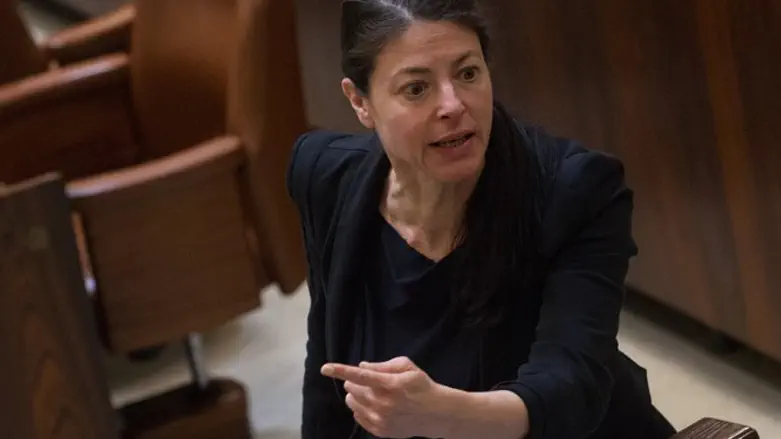
The Knesset law committee conducted a hearing about the appointment of a woman as director-general of the rabbinical courts. During the hearing the committee was presented with proposals for new directives from the Religious Affairs ministry.
The new directives define the requirements for the role, including a stipulation that the candidate's lifestyle suits his position as director of the courts.
Dr Rafi Reches, the legal advisor to the rabbinical courts, explained that the goal of the directives is to ensure that the director of the courts will have the halakhic and legal expertise required and therefore a clause was inserted requiring him or her to be a lawyer.
These requirements aroused strong opposition of the women's groups as well as MKs Merav Michaeli (Zionist Union) and Elazar Stern (Yesh Atid). They claimed that the goal of these directives is to prevent a woman from serving as director of the courts. During the hearing the women's groups declared that the person most suited to serving as director of the rabbinical courts is the director of the Mavoy Satum (Dead End) organization, attorney Batya Kahana-Dror, whose organization helps Agunot ('chained' women whose husbands refuse to grant a Jewish divorce) obtain divorce documents from their husbands.
However MK Uri Maklev and Avner Porat, a representive of the Hotam organization, expressed support for the new requirements and claimed that the women's groups were hypocritical as they did not make the same demand asking for a woman to serve as director of the secular courts and would have accepted the criteria for secular courts.
Porat said that Kahana-Dror intends to "change the laws", change the courts approach and influence the halakhic process. He said that just as ministries needed directors who understood the requirements of the ministry, the rabbinical courts need people who identify and are familiar with the halakhic methodology.
MK Michaeli responded by saying that "the whole state and everything going on here must conform with democratic principles. We are just beginning with the courts and our goal is that there should be a female rabbi in every town and in every position which exists."